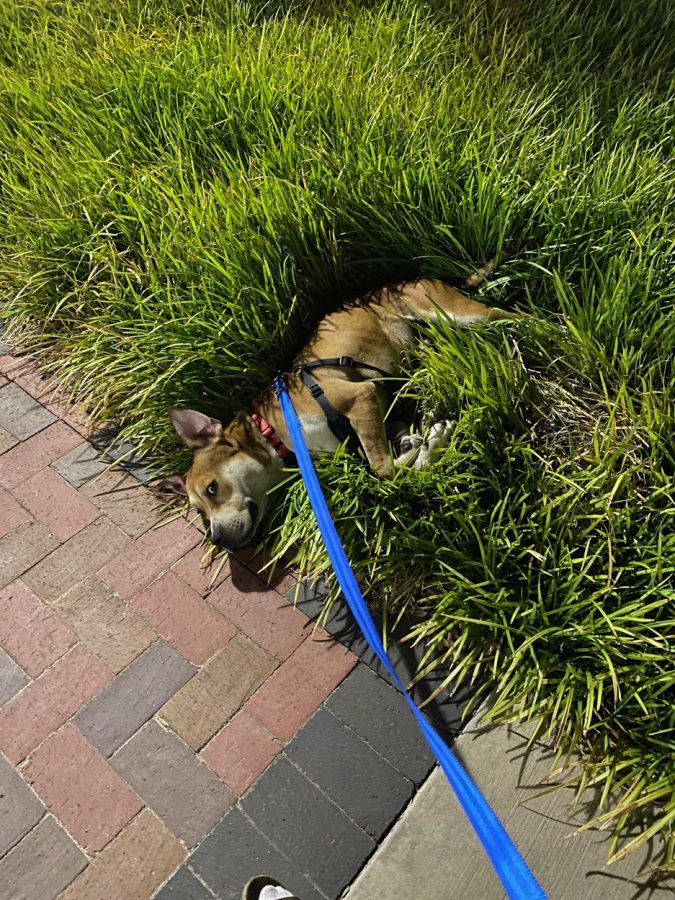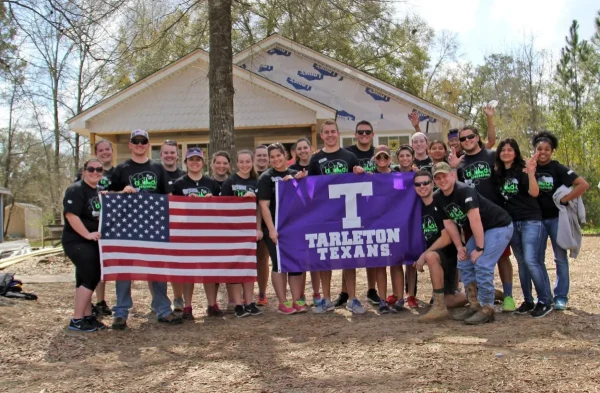What did I just step in??
How irresponsible dog owners are ruining Tarleton’s image
In the summer of 2021, Tarleton added a dog park to its campus. The dog park is a fenced area that allows dogs and their owners the opportunity to congregate, play, and roam free. It is located behind Heritage Hall and has been in full use since its inception. However, \the creation of a dog park on campus also breeds the influx of dogs observable on campus. Alongside the increase of animals belonging to the species canis lupus familiaris, is the increase of their fecal matter. In other words, there is more dog poop spotted around campus.
The main rules of owning a pet are that the owner is liable for the life of that animal, which means feeding, bathing, and cleaning up after it. However, dog owners have become negligent when it comes to cleaning up after their animals. Walking down the paths along the residence halls, the remnants are visible for the world to see. That means for the majority of students, parents, alumni, and staff they are subject to a blatant display of irresponsibility from the owners of these animals.
While it is understood that the animals that live on campus are supposed to consist of service dogs, emotional support animals (ESA), and those falling under similar categories. Under most circumstances these students do an exceptional job of cleaning up after their animals, after all most of them are trained. The problem exists with the students who are simply not cleaning up after their pets because they do not want to and are being irresponsible, leaving the problem to the cleaning services here on campus. While it is their job to beautify campus, it is not their job to pick up the mess of an immature pet owner that is simply being lazy. As such, it has been left mostly untouched.
“It’s gross,” third year education student, K.C. states, “I really hate seeing it because it’s disgusting and in the way.”
As we discussed the inconvenience of having to both see and smell the disturbance, there was also the dialogue as to how inconsiderate it was. She even protested that for weeks at a time, she was forced to avoid stepping on the fecal residue as it would often be brazenly exhibited on the sidewalk. As no one was taking ownership or cleaning up what was left over, she and many others were forced to deal with the consequences. A prime example is people who may be wheel-chair bound. As fecal matter is left on a major ramp near the residence hall they may be left defenseless against it, as it is difficult to avoid.
Similarly another junior education student, Ky MoBottorff, worries for other students who are conscientious with their dogs and what comes with caring for them.
“I just am scared that the negligent people are going to ruin it for everybody,” MoBottorff expresses.
Meaning, if and when Tarleton does hold people accountable for dirtying their otherwise unsoiled campus, that others may also be swept up in how the school handles it. Which begs the questions that many of these owners are banking on, how will they know who left what? And, how will they deal with it?
Even so, it is the responsibility of the pet owner to clean up after said pet; if they make a mess, clean it up. At this point, it should not be a choice, but a necessity that comes along with owning a dog. By simply not picking up your dog’s droppings, it creates an inconvenience for nearly everyone else who has to see it, smell it, and may step in it. If the dog park is too far there are trash cans easily accessible around campus, the least you can do as a pet owner is to throw it away.





